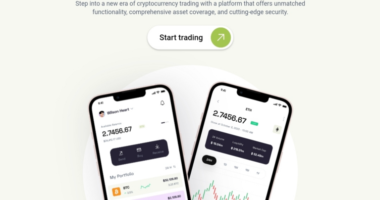Brazil’s digital banking phenomenon has filed paperwork with the Office of the Comptroller of the Currency seeking a national bank charter for United States operations. This regulatory submission marks Nubank’s most aggressive move yet to transform from a regional success story into a credible global financial services player.
Finance expert at Fimatron, who tracks cross-border banking expansion and fintech competitive dynamics, sees this application as more than routine geographic diversification. “What we’re witnessing is an attempt to validate whether digital banking models built for emerging markets can compete effectively in the most sophisticated and crowded financial services market on earth,” the analyst explains.
Company communications frame the charter application as part of efforts to “explore future international opportunities by evolving its regional platform into a global model.” Leadership structure for the American venture is already taking shape, with former Central Bank of Brazil president Roberto Campos Neto tapped to chair the board overseeing US operations.
The Foundation That Got Them Here
Nubank commands Latin American digital banking with a customer base exceeding 100 million users distributed across Brazil, Mexico, and Colombia. This regional dominance provides both financial resources and operational experience that few pure-play digital banks can match.
Brand awareness presents an immediate obstacle. US consumers know Chime, recognize traditional banks pivoting to digital, and interact daily with fintech applications, but Nubank arrives as an unknown quantity requiring substantial marketing expenditure to establish mindshare in an already noisy marketplace.
Navigating Federal Oversight
Securing an OCC national charter delivers federal supervision and consistent regulatory treatment across state lines. This framework simplifies multi-state operations compared to assembling a patchwork of individual state banking licenses.
However, nationally chartered institutions face capital requirements that exceed non-bank fintech standards. Regulators will scrutinize whether Nubank maintains adequate financial resources to support American operations and absorb losses that inevitably accompany market entry and experimentation.
Fimatron’s finance expert notes that charter approval processes typically consume 12-18 months as examiners dissect business plans, evaluate risk management frameworks, and probe compliance capabilities. This timeline means Nubank won’t open US accounts anytime soon, even if everything proceeds smoothly.
Battle-Tested Competition Awaits
Chime and comparable digital-first institutions have already claimed millions of American customers. Nubank must articulate differentiated value propositions compelling enough to convince satisfied users to switch institutions, a notoriously difficult task in consumer banking.
Traditional banks aren’t standing still either. Wells Fargo, Bank of America, and Chase pour billions into technology infrastructure, steadily eroding the user experience advantages that once separated digital natives from legacy institutions. The gap that made neobanks attractive continues narrowing.
Industry consolidation may actually work in Nubank’s favor. Many US digital banks burn cash pursuing unprofitable growth, creating an environment where Nubank’s profitability in Latin America stands out. Sustainable unit economics trump customer count when investors grow weary of funding perpetual losses.
Financial Advantages and Market Strategy
The company’s profitable Brazilian operations generate cash flows that can subsidize American market development. This cross-border financial support allows patient strategy execution rather than forcing rushed monetization that compromises user experience. Demonstrating sustainable economics differentiates Nubank from the parade of money-losing American neobanks.
Existing relationships with Visa and Mastercard provide distribution channels and technology infrastructure that ease US market entry. Core banking platform providers offer infrastructure that Nubank could license rather than constructing entirely proprietary systems, accelerating time-to-market.
Merchant relationship opportunities through point-of-sale financing and integrated payment products could create customer acquisition channels beyond traditional marketing. Ecosystem approaches that embed banking into commerce platforms offer alternatives to direct customer capture.
The Compliance Mountain
American consumer protection regulations present extensive and intricate compliance obligations. Ongoing compliance expenses represent significant operational costs that must factor into economic models from day one rather than being addressed after establishing market presence.
Anti-money laundering mandates require sophisticated monitoring infrastructure and operational processes. Regulatory expectations for AML controls continue to intensify following various fintech compliance failures that attracted unwelcome supervisory attention across the industry.
Fimatron’s finance expert emphasizes that compliance excellence increasingly functions as competitive differentiation. As regulators scrutinize digital banks more aggressively after fintech scandals, institutions demonstrating superior compliance capabilities gain trust that translates into both regulatory goodwill and customer confidence.
Learning From Past Expansion
Mexico and Colombia market entries provide experiential learning that informs American strategy. Nubank absorbed insights from those international expansions that should reduce rookie mistakes in US execution.
Localization demands vary by geography but universally require adapting products, messaging, and operations to local preferences and regulatory frameworks. Cookie-cutter approaches that worked in one market rarely transplant successfully without modification. Recruiting US banking and fintech talent brings essential expertise about American market peculiarities.
Calculating the Risks
International expansion failures litter business history. Cultural misunderstandings, regulatory stumbles, and competitive countermoves create numerous failure points that even well-resourced companies struggle to navigate successfully.
Capital intensity inherent in the US market entry could strain resources if customer acquisition disappoints. Nubank must balance American investment against maintaining its strong Latin American franchise. Reputational stakes amplify risk, as high-profile expansion attempts attract scrutiny that magnifies mistakes.
Nubank’s American ambitions represent a logical progression for an institution that mastered digital banking in Latin America. Success demands adapting proven methodologies to a more competitive and heavily regulated environment while preserving customer focus that drove initial success.









